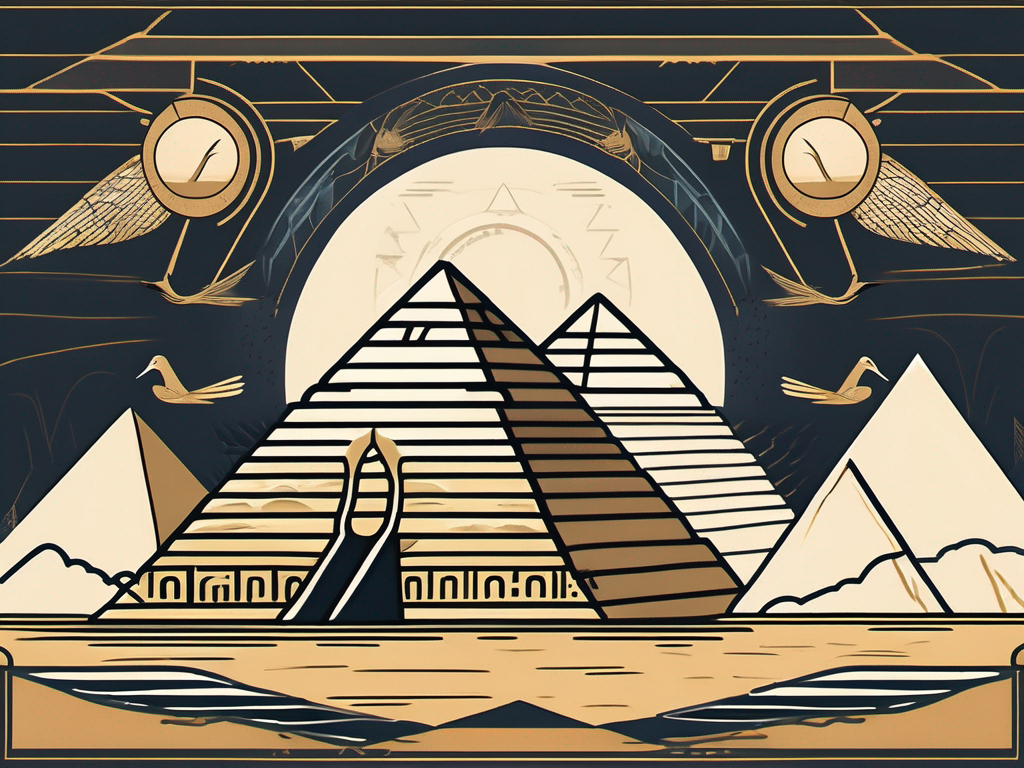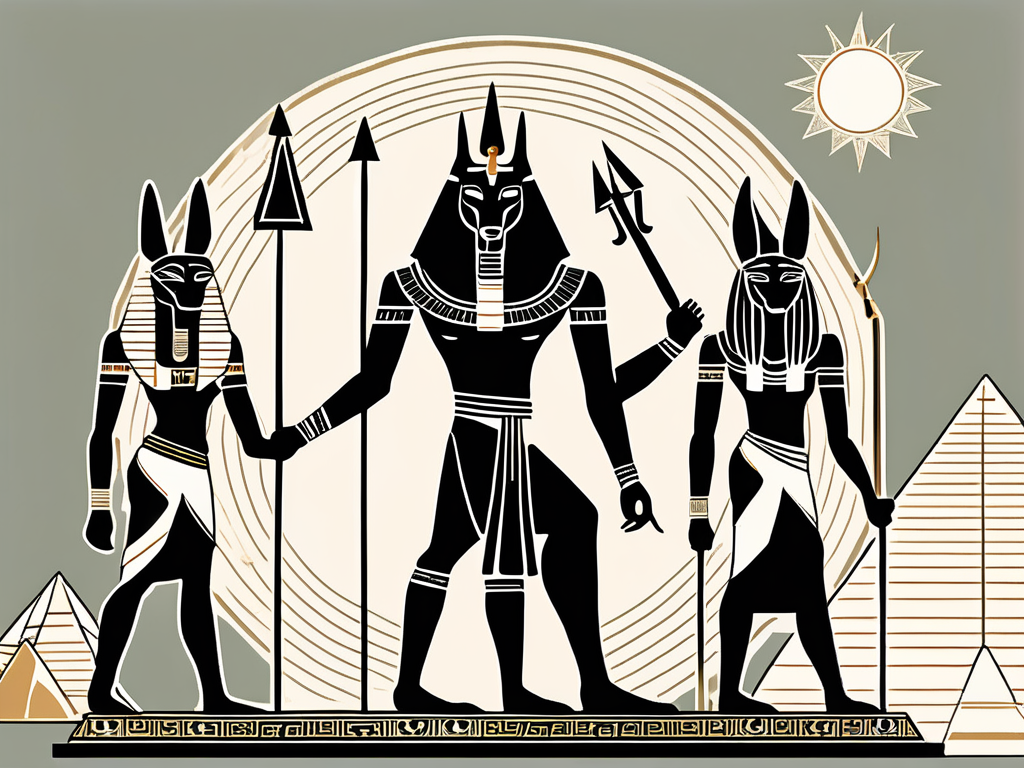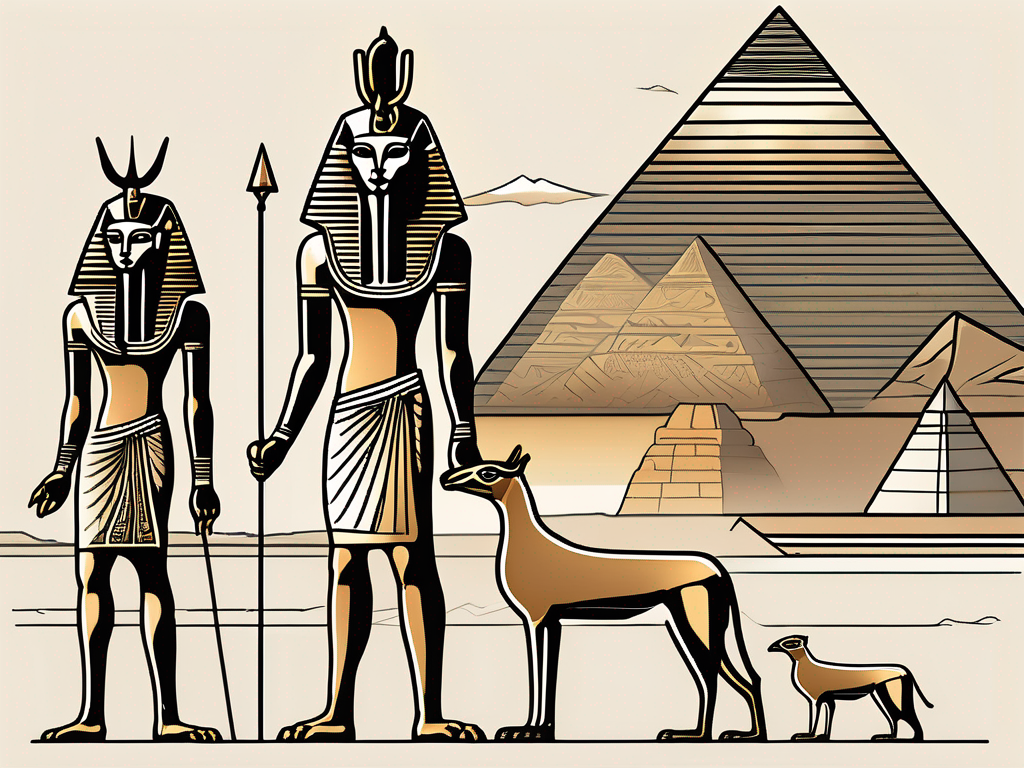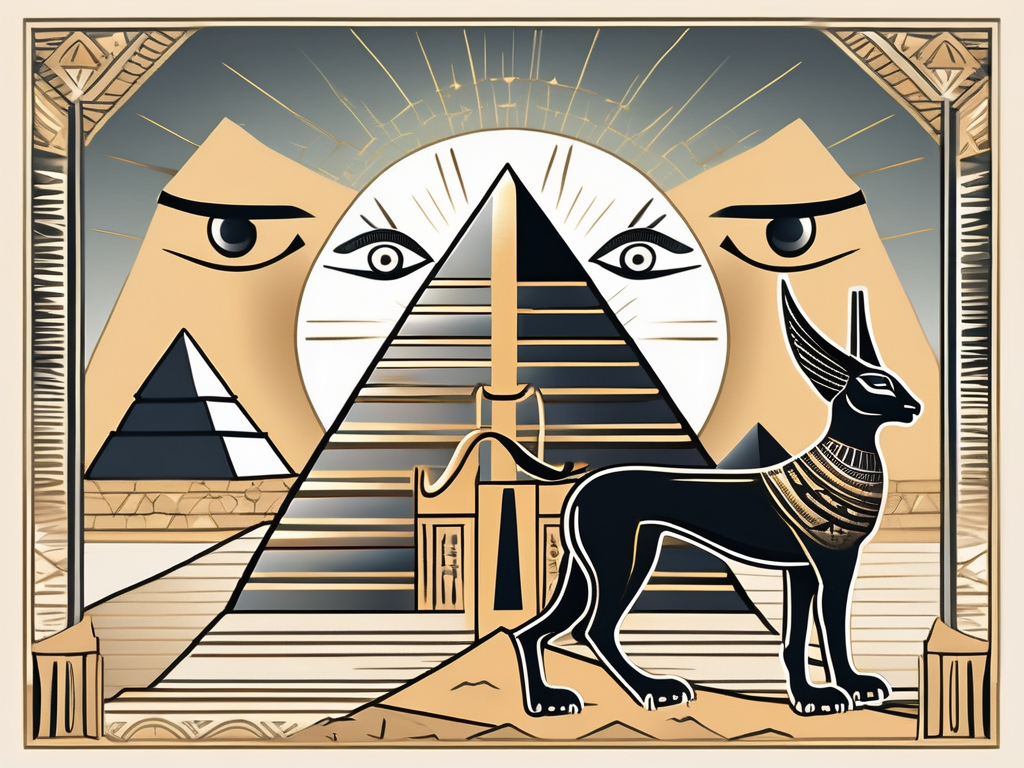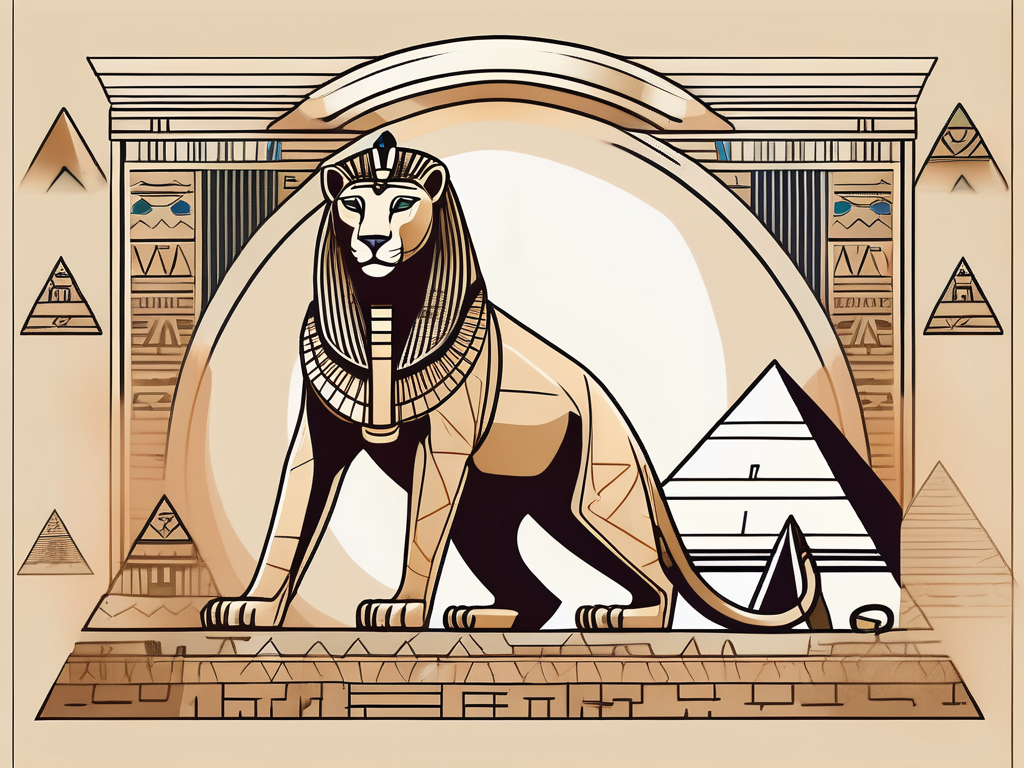Have you ever wondered about the gods and goddesses of ancient Egypt? These powerful deities played a significant role in the lives of the ancient Egyptians, with each deity embodying unique qualities and powers. In this article, we will delve into the fascinating world of one such deity – Beset, the fierce lioness goddess. Prepare to be captivated by her mythology, delve into her role in ancient Egyptian religion, uncover the symbolism behind her representation, and explore her lasting cultural impact. Let’s embark on this journey to unravel the mighty Beset and her power and influence in ancient Egypt.
Understanding Beset: The Fierce Lioness Goddess
The Mythology of Beset
Before we delve into the depths of Beset’s power and influence, let’s first understand her intriguing mythology. In ancient Egyptian mythology, Beset was known as the fierce lioness goddess, embodying strength and ferocity. She was often depicted as a lioness or as a woman with the head of a lioness. Beset was considered to be the protector of pharaohs and their royal families, their fierce guardian against any threats that may befall them.
Legend has it that Beset was born from the union of the sun god Ra and the lioness goddess Sekhmet. This divine lineage bestowed upon her immense power and authority. It is said that when Beset roared, the earth trembled, and her enemies quivered in fear. Her presence alone was enough to strike fear into the hearts of those who dared to challenge the pharaoh’s rule.
According to ancient texts, Beset was not only a fierce warrior but also a wise and cunning strategist. She possessed an unparalleled intellect and was known for her ability to outwit her adversaries. It is said that she would often appear in dreams, offering guidance and protection to those who sought her aid.
Beset’s Role in Ancient Egyptian Religion
Beset occupied an essential place in the ancient Egyptian religion, often revered alongside other major deities. She was believed to have been present from the earliest times and was worshipped as a deity who could protect and aid people in various aspects of their lives. Beset was particularly associated with the protection of mothers during childbirth and the protection of homes from evil spirits or intruders.
Mothers would often pray to Beset for a safe and successful delivery, seeking her divine intervention to ward off any complications or dangers that might arise. It was believed that Beset would stand guard at the entrance of the home, ensuring that no harm would befall the family residing within.
Furthermore, Beset was also revered as a goddess of fertility and abundance. Farmers would offer prayers and sacrifices to her, seeking her blessings for a bountiful harvest. Her connection to the natural world was deeply ingrained in the ancient Egyptian belief system, and her favor was sought after for the prosperity and well-being of the community.
The Symbolism of Beset
The representation of Beset as a lioness carries deep symbolism that adds to her power and influence. The lioness was known for her ferocity and protective nature, symbolizing strength, courage, and maternal instincts. With her sharp claws and mighty roar, Beset symbolized not only the physical strength needed for protection but also the powerful force of the divine that could overcome any obstacles.
Her association with motherhood and protection further emphasized her nurturing qualities. Just as a lioness fiercely protects her cubs, Beset was believed to fiercely guard and protect those under her care. Her maternal instincts extended beyond her own offspring, encompassing all who sought her guidance and shelter.
Moreover, the lioness was also seen as a symbol of royalty and authority in ancient Egypt. Beset’s depiction as a lioness with the head of a woman reinforced her status as a powerful deity who possessed both the strength of the animal kingdom and the wisdom of humanity. She embodied the ideal qualities of a ruler – strength, intelligence, and the ability to protect and provide for her subjects.
In conclusion, Beset, the fierce lioness goddess, held a significant place in ancient Egyptian mythology and religion. Her mythology, role, and symbolism all contributed to her enduring power and influence as a protector and guardian. Whether it was safeguarding the pharaohs, aiding mothers in childbirth, or symbolizing strength and courage, Beset’s presence was felt throughout ancient Egypt, leaving an indelible mark on the culture and beliefs of the civilization.
The Power of Beset
Beset, the ancient Egyptian goddess, possessed a power that was multifaceted and awe-inspiring. One of the most prominent aspects of Beset’s power was her role as a protector and warrior. Ancient Egyptians sought her divine intervention for protection against dangers, both physical and spiritual.
Believed to be a fierce guardian, Beset was revered for her ability to ward off evil spirits and provide physical protection to individuals, especially mothers and their children. Her presence was seen as a shield, shielding her devotees from harm and ensuring their safety in a world fraught with perils.
But Beset’s power did not stop at being a protector. She was also seen as a warrior, ready to fight any threat that came in the way of her devotees. Her strength and courage were legendary, and her devotees took solace in knowing that they had a fierce and formidable ally in their corner.
The Divine Authority of Beset
Beset’s power extended beyond protecting individuals and households. She was revered for her divine authority, believed to have the ability to influence the Pharaohs and rulers of ancient Egypt. Her association with royalty meant that her favor was sought after by the pharaohs, who believed that her protection and guidance would ensure the success and prosperity of their reigns.
As a deity with immense authority, Beset held sway over the decisions and actions of the Pharaohs. Her divine influence was seen as a guiding force, steering the rulers towards wise choices and ensuring the stability and prosperity of the kingdom. The pharaohs sought to align themselves with Beset’s power through various rituals and ceremonies, ensuring her continued support and divine favor.
Beset’s Influence on Pharaohs and Rulers
The influence of Beset on the pharaohs and rulers of ancient Egypt cannot be underestimated. She was not merely a distant deity to be worshipped from afar; she played an active role in the lives of the rulers. Beset’s protective role extended to providing guidance and strength to the rulers, aiding them in their decision-making and ensuring their dominion over their lands.
Pharaohs sought her counsel and invoked her name in times of uncertainty, believing that her wisdom and divine insight would lead them towards the right path. Beset’s influence on the rulers was not limited to their personal lives; it extended to matters of state and governance as well. Her divine authority gave the rulers the confidence and assurance that they needed to govern with strength and wisdom.
In conclusion, Beset’s power was not confined to a single aspect; she was both a protector and a warrior, a deity with divine authority and influence over the rulers. Her presence brought comfort and security to her devotees, and her guidance ensured the success and prosperity of the pharaohs. The power of Beset was truly remarkable, and her legacy continues to captivate and inspire to this day.
The Cultural Impact of Beset
Beset in Literature and Art
Beset’s power and influence permeated various aspects of ancient Egyptian culture, including literature and art. She was often depicted in sculptures, reliefs, and amulets, showcasing her dominant presence in the artistic expressions of ancient Egypt. Beset’s depictions can be found in ancient texts, such as the Book of the Dead, further highlighting her significance in the religious beliefs of the ancient Egyptians.
The Modern Perception of Beset
Despite the passage of millennia, Beset continues to captivate modern audiences with her fierce and protective nature. In contemporary Egypt, she is seen as a symbol of strength, particularly for women. She has become an inspiration for those seeking to harness their inner power and courage. The modern perception of Beset serves as a testament to the lasting impact she has had on Egyptian culture through the ages.
The Legacy of Beset in Contemporary Egypt
Beset’s legacy lives on in contemporary Egypt, with her influence extending beyond mythology and symbolism. Her presence can be felt in festivals and celebrations held in her honor, where devotees come together to pay homage to her mighty power and seek her protection. The Cultural Impact of Beset serves as a reminder of the rich historical tapestry that continues to shape modern Egypt.
The Worship and Rituals of Beset
Temples and Sacred Spaces Dedicated to Beset
Beset’s power and influence were celebrated through the construction of temples and sacred spaces dedicated to her worship. These holy places served as gathering points for devotees, where they could seek Beset’s blessings and offer their prayers. The design of these temples often incorporated lioness motifs and imagery, further emphasizing the connection between Beset and her devotees.
Ritual Practices and Offerings to Beset
The worship of Beset involved various ritual practices and offerings. Devotees would frequently perform rituals to invoke Beset’s protection and aid in their daily lives. Offerings of food, incense, and other objects were made to Beset, symbolizing the devotees’ gratitude and seeking her continued favor. The rituals and offerings served as acts of devotion and reverence to the mighty lioness goddess.
Festivals and Celebrations in Honor of Beset
Beset’s influence was celebrated through grand festivals and celebrations held in her honor. These occasions brought communities together to express their devotion and gratitude to Beset. The festivals featured music, dance, and elaborate processions, creating a vibrant and joyous atmosphere that embodied the power and energy of the goddess. These celebrations allowed the devotees to connect with the divine presence of Beset and strengthen their bond with her.
In conclusion, the power and influence of Beset, the mighty lioness goddess, in ancient Egypt were immense. From her role as a protector and warrior to her influence on pharaohs and rulers, Beset commanded respect and reverence. Her symbolism, cultural impact, and worship through temples, rituals, and festivals were testament to her significance in the lives of ancient Egyptians. Today, the legacy of Beset continues to endure, captivating modern audiences with her power and strength. The exploration of Beset’s power and influence offers us a glimpse into the rich tapestry of ancient Egyptian mythology and the enduring human fascination with divine forces.




